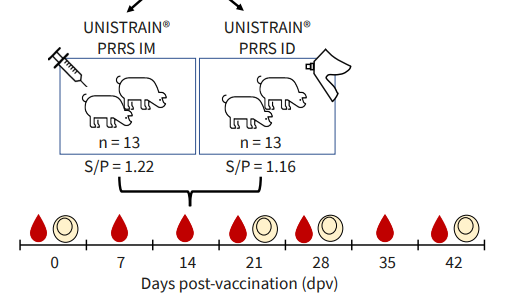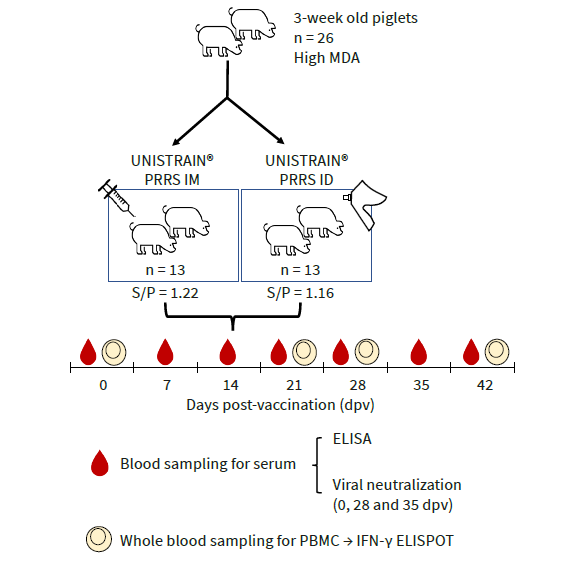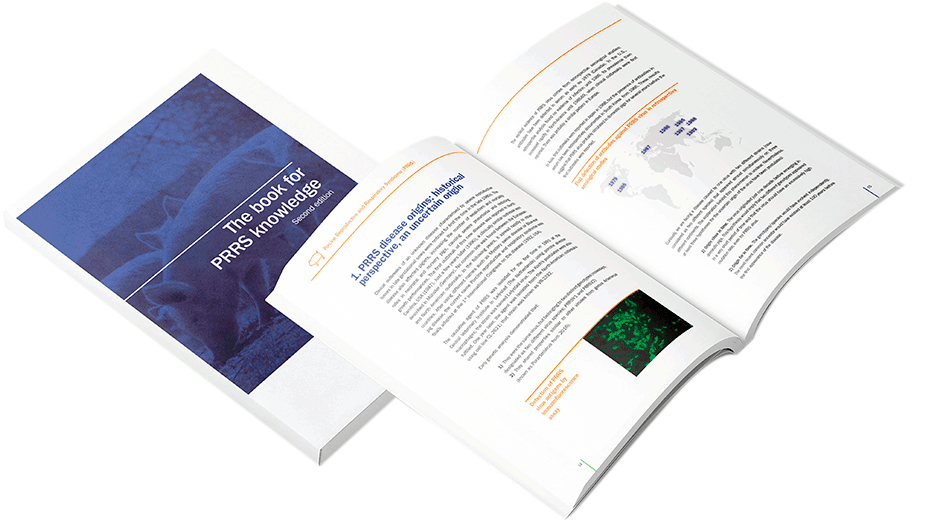Publication of Laia Aguirre et al. in the ESPHM 2022.
Intradermal and intramuscular vaccination against PRRS in piglets with modified live vaccine confer similar immune response in presence of maternally derived antibodies
Introduction
Maternally-derived antibodies (MDA) may protect piglets against infections during the first weeks of life. However, MDA may also interfere with vaccinations (1).
The present study aimed to assess the development of the immune response against PRRSV after vaccinating piglets by either the intradermal (ID) or the intramuscular (IM) route in piglets with high MDA levels.
Materials and Methods
Results of vaccinating piglets
Despite the presence of high MDA levels, vaccination resulted in seroconversion by 14 dpv (average S/P IM: 2.10 ID: 2.13) with high S/P values until the end of the study (average S/P IM: 2.76, ID: 2.94). Both groups developed neutralizing antibodies by 28 dpv that increased by 35 dpv (IM: 4.6±2.8 and ID: 3.9±3.4 Log2 ) (Fig.1).
IFN-γ responses were detected by 21 dpv (IM: 122 and ID: 148 secreting cells/106 PBCMs) and further increased by 42 dpv (IM: 159 and ID:189 cells/106 PBCMs) (Fig. 2).
Differences between groups were non-significant.
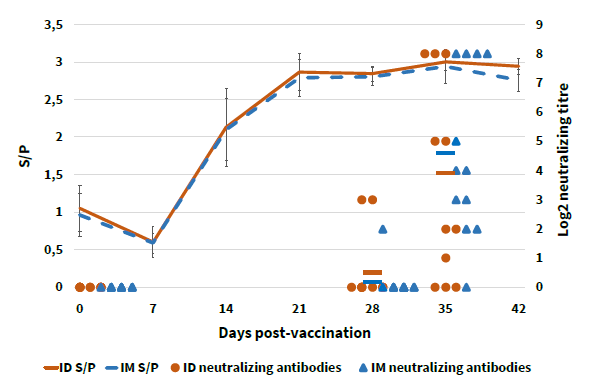
Figure 1. Evolution of S/P ratios as determined by ELISA and virus neutralization in IM and ID groups. The vertical bars indicate the standard deviation, and horizontal bars indicate mean log2 neutralization titres.
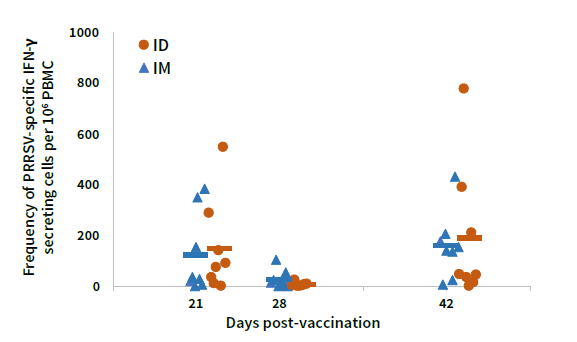
Figure 2. IFN-γ secreting cells frequencies by ELISPOT at 0, 21, 28 and 42 dpv. Horizontal bars indicate mean values for each group and date.
Discussion and Conclusion
The results of the present study suggest that vaccinating piglets with UNISTRAIN® PRRS was able to produce an immune response despite the presence of high MDA. Notably, this response was consistent with previous studies in which the vaccinated piglets did not have MDA (2, 3).
Moreover, intramuscular and intradermal routes of administration produce similar immune responses.
If you want to read more publications about PRRS: PRRS Control Publications
You can ask your own question! Visit Pig333.com and submit your question to the experts.
References
- Renson P et al. 2019. Vaccine. 18;37(31):4318-4324.
- Madapong A et al. 2020. Vet. Microbiol. 244.
- Martelli P et al. 2009. Vaccine. 27, 3788-3799.
HIPRA © All rights reserved

